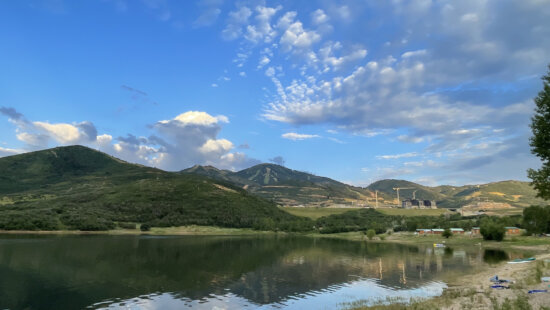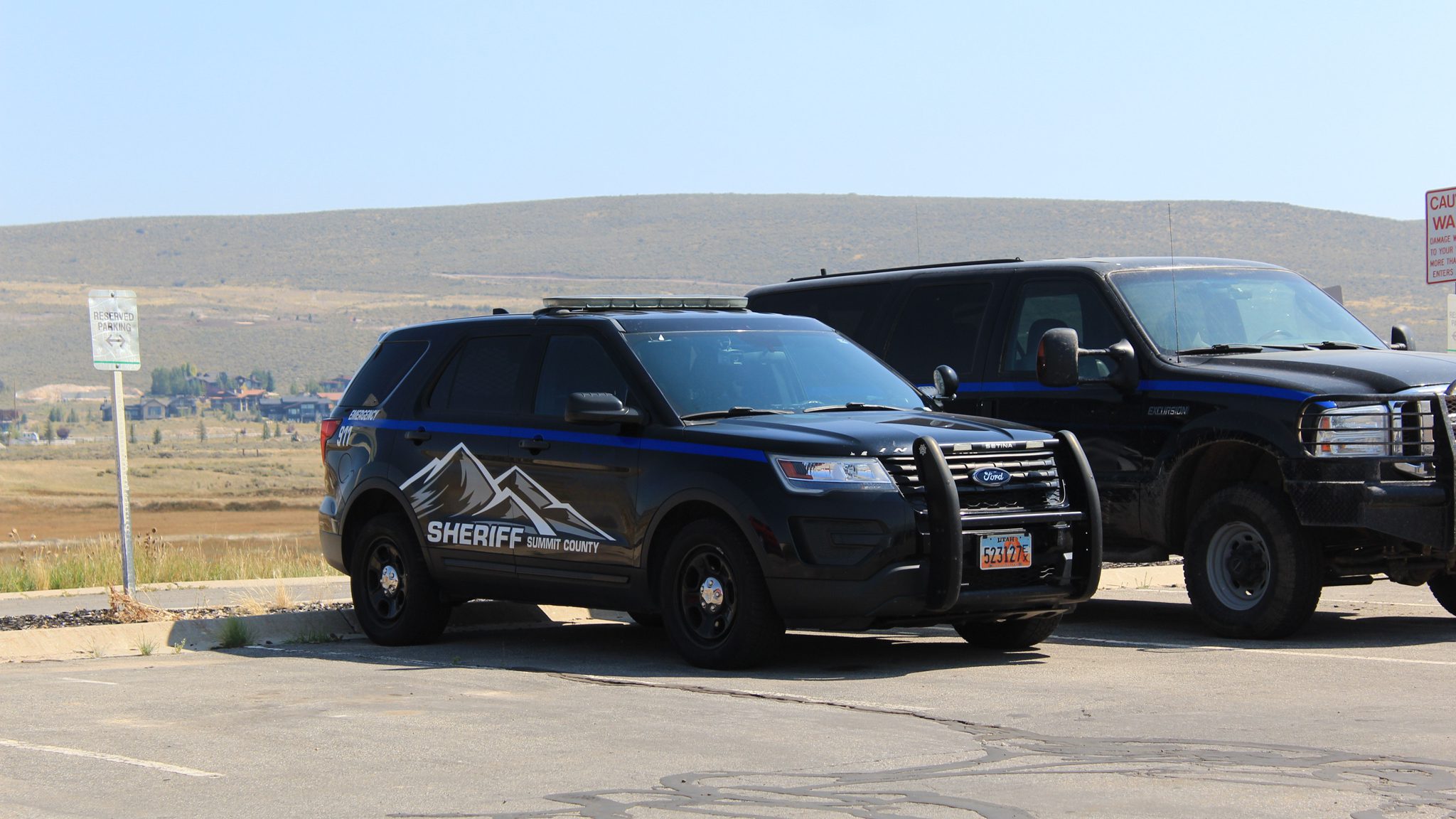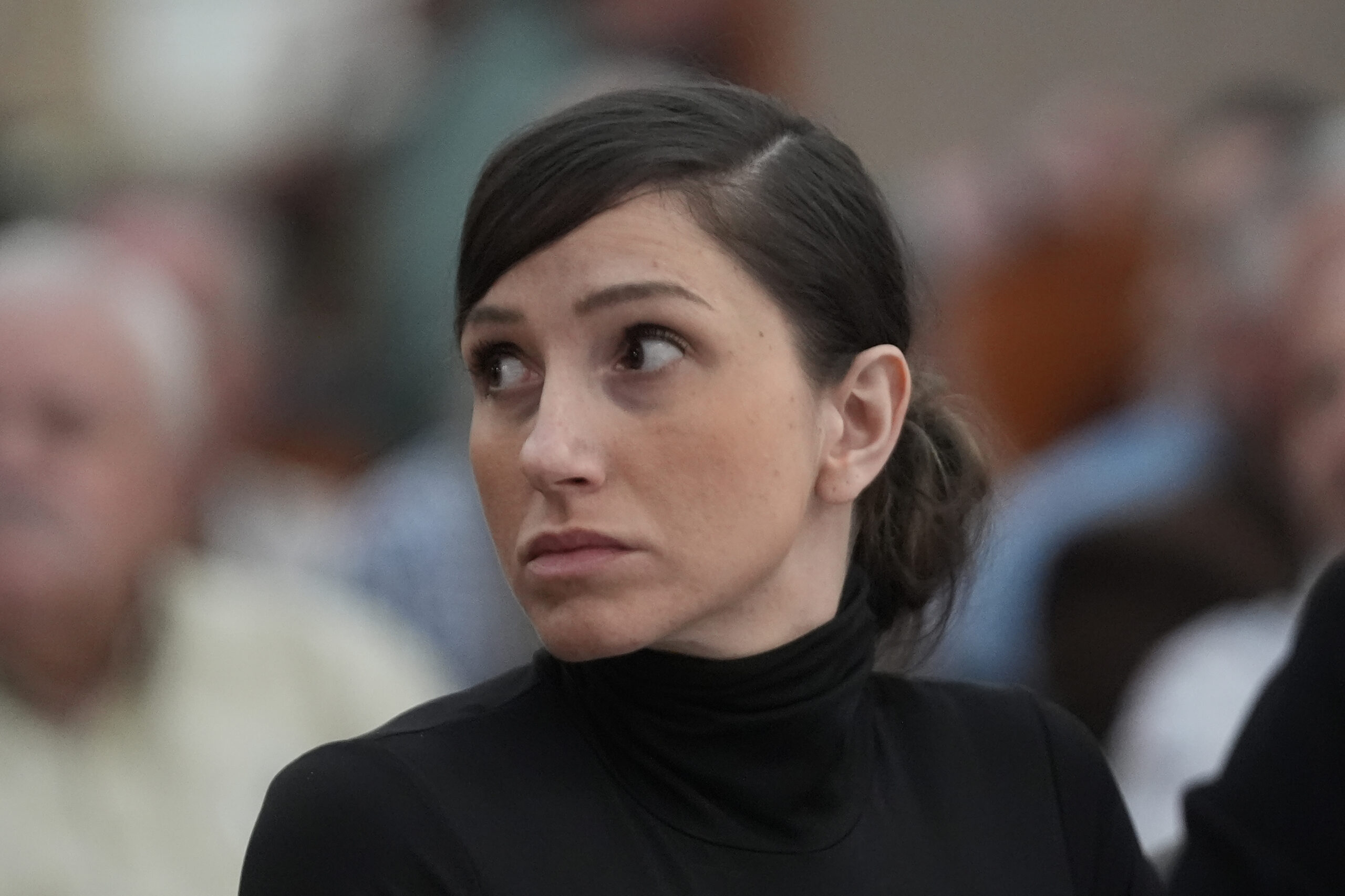News
Tribal Communities Gripped by Haaland Hearing for Top US Post
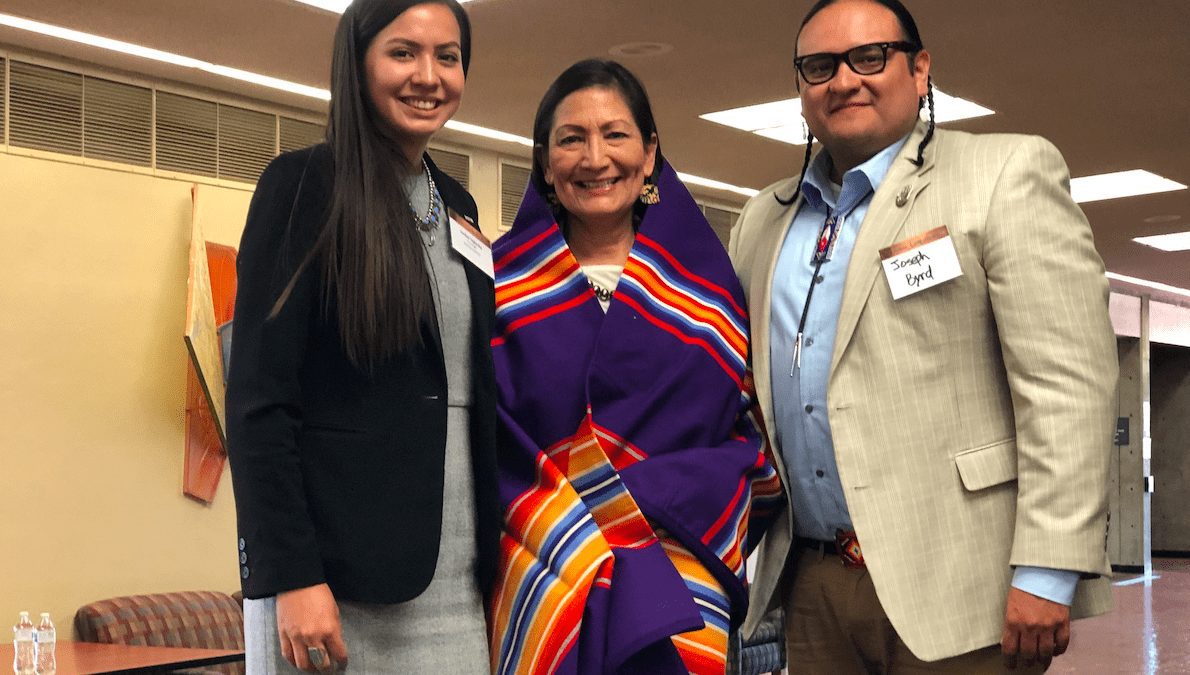
Tribal Law Journal 20th Anniversary (2019). Photo: Congresswoman Deb Haaland (Flickr)
FLAGSTAFF, Ariz. (AP) — For Native Americans, Deb Haaland is more than an elected official on track to become the first Indigenous secretary of the Interior Department. She is a sister, an auntie and a fierce pueblo woman whose political stances have been molded by her upbringing.
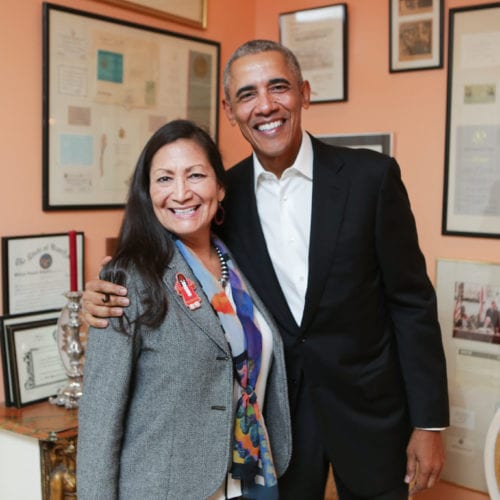
News of her historic nomination electrified Indian Country. Tribal leaders and organizations for weeks have urged people to write and call U.S. senators who will decide if she’ll lead the agency that has broad oversight over Native American affairs and energy development.
Haaland’s confirmation hearing this week is being closely watched in tribal communities, with some virtual parties drawing hundreds of people. The hearing started Tuesday.
To mark the event, supporters projected a picture of the New Mexico congresswoman on the side of the Interior building with text that read “Our Ancestors’ Dreams Come True.” A mobile billboard with Haaland’s image also made its way around Washington, D.C.
Many Native Americans see Haaland as a reflection of themselves, someone who will elevate their voices and protect the environment and tribes’ rights.
Here are stories of her impact:
ALETA ‘TWEETY’ SUAZO, 66, LAGUNA AND ACOMA PUEBLOS IN NEW MEXICO
Suazo first met Haaland when they were campaigning for Barack Obama, walking door to door in New Mexico’s pueblos.
When Haaland was chosen to represent New Mexico as one of the first two Native American women ever elected to Congress, she turned to Suazo and the state’s Native American Democratic Caucus to make treats for a reception.
They prepared hundreds of pueblo pies, or pastelitos, and cookies, froze them and took them to Washington. Wearing traditional black dresses, they handed out the goodies with a thank-you note from Haaland.
When she heard Haaland was nominated as Interior secretary shortly after winning a second term in Congress, Suazo wasn’t overjoyed, “Oh my gosh, she is going to go there, and who is going to represent us?” said Suazo, who lives in Rio Rancho, New Mexico. “There goes our one and only Indian representative.”
“I was happy, but I was afraid. I didn’t want to lose her,” Suazo said. But she sees the importance, she said, in having a Native American oversee an agency that touches nearly every aspect of Native American life.
DEBBIE NEZ-MANUEL, 49, NAVAJO NATION IN ARIZONA, NEW MEXICO AND UTAH
During her recent campaign for an Arizona legislative seat, Nez-Manuel sought an endorsement from Haaland. She was looking for someone whose values aligned with hers: grounded in beliefs, connected to the land, a consistent and strong leader unchanged by politics.
After layers of vetting, she got the endorsement and planned to announce it at a get-out-the-vote rally featuring Haaland at the Gila River Indian Community in Arizona. It also was a chance for the two women to take a picture together.
Then, the event was canceled because of the pandemic. Nez-Manuel was devastated.
Days before she was supposed to meet Haaland, Nez-Manuel was sitting at home when her phone rang. She didn’t recognize the number.
“Hey Debbie, this is Deb,” the voice on the phone said. “Who?” Nez-Manuel asked.
The caller replied: “Deb Haaland. Good morning. I’m calling from New Mexico. I’m sitting in my kitchen.”
Nez-Manuel’s heart raced, and she struggled to voice all the thoughts she had so carefully scripted for that meeting. Haaland, she said, was patient and shared stories about life on and off a reservation — something that resonated with Nez-Manuel.
“It’s like talking to an auntie,” she said. “She’s very matter of fact.”
Nez-Manuel joked about flying to Washington for Haaland’s confirmation hearing to get that elusive picture.
Instead, she and her husband, Royce, connected to a virtual watch party from their home on the Salt River-Pima Maricopa Community northeast of Phoenix. Nez-Manuel said Haaland showed she was willing to learn from others, aptly answering questions and pledging to make decisions based on science.
“She is about protecting what’s there, what’s good for humanity, not for pocketbooks,” Nez-Manuel said. “That’s something that stood out very clearly.”














